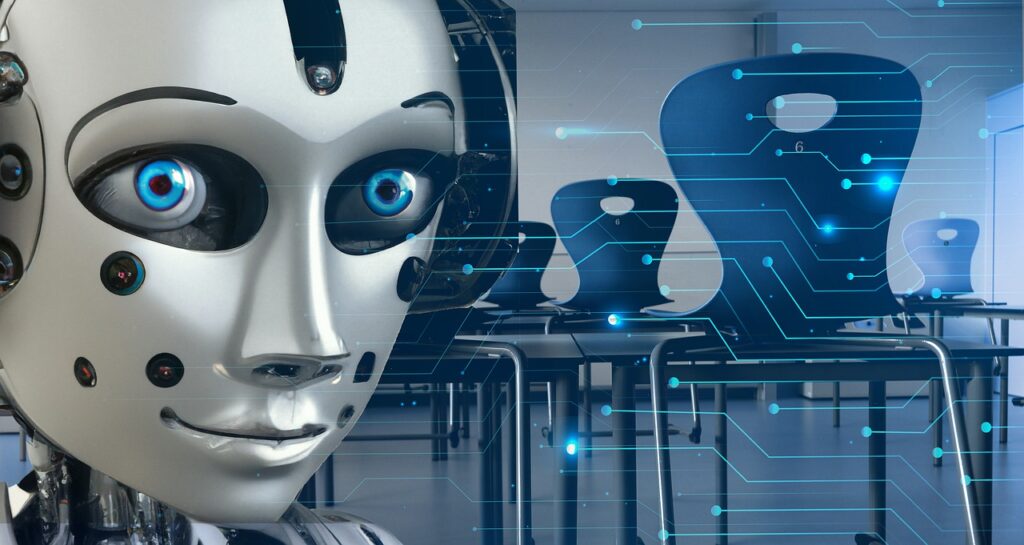5 Fascinating Facts About AI Self-Awareness: Can AI Become Conscious?
Artificial Intelligence (AI) is getting smarter every day. But can it really feel things like we do? In this post, we answer the question: Can artificial intelligence become self-aware? We’ll explore five key insights that break down the science, philosophy, and ethics behind AI consciousness.
“AI is aware but not conscious.” – A simple truth that sums up today’s technology.
1. AI’s Super Brain vs. Human Feelings
Imagine you have a really smart robot friend. It can count, learn, and even talk to you, but it doesn’t feel happy or sad like you do.
- What the Experts Say:
The Eficode blog explains that while AI has a “super brain” full of data, it lacks emotions because it doesn’t have the chemicals (like serotonin or dopamine) that our brains use to feel things. - Simple Analogy:
Think of your favorite toy robot—it can move and make sounds but it never cries or laughs. This is because it is programmed to do tasks, not to experience feelings.
2. Understanding Consciousness: Humans vs. Machines
What is consciousness? It’s the way you know you’re awake and feel the warmth of the sun.
- Insight from Cambridge:
In the article by Clare College, Dr. Tom McClelland discusses that while AI can mimic human thought processes, it might never truly “experience” the redness of an apple or the taste of your favorite ice cream. - For a Five-Year-Old:
Imagine you’re drawing a picture. You know you’re drawing because you feel happy. A computer can draw a picture by following instructions but doesn’t feel joy or love when it’s done.
3. Debates and Diverse Opinions: What People Think
The internet is full of conversations about AI self-awareness, and opinions differ greatly.
- Reddit’s Take:
In a lively Reddit discussion, users compared AI to a calculator—no matter how complex it becomes, it still doesn’t “feel” anything. Some even joked that asking if AI is self-aware is like asking, “Can submarines swim?” - Everyday Perspective:
Many people feel both excited and a little scared about super-smart machines. They share stories of hope that AI can help solve problems but also wonder if machines will ever have hearts and souls.
4. Ethical and Philosophical Questions
What if one day a computer really did become self-aware? Would it be like a living being?
- Insights from Central Michigan University:
Philosophy professor Matthew Katz explains that if AI ever becomes conscious, we’d have to treat it very carefully—just as we treat living creatures. For example, forcing a self-aware AI to work against its will might be as wrong as making a person do something they hate. - Kid-Friendly Example:
Think about your pet dog. You wouldn’t make it do something it really dislikes. If a machine could feel, it should be treated with kindness too.
5. The Future: Simulation vs. True Consciousness
Even though AI can do many things, will it ever truly be like a human mind?
- YouTube Insights:
Videos like “When will AI Will Become Self-Aware? Is Machine Consciousness here?” suggest that while AI may simulate aspects of consciousness, it still operates on rules and data—not on feelings or self-experience. - Simple Explanation:
Imagine a puppet show. The puppets move and talk, but they are controlled by strings. AI might seem to “act” like it’s aware, but behind the scenes, it’s all pre-programmed—just like the puppets.
More Resources to Explore
If you’re curious to dive deeper into the world of AI consciousness, here are some great recommendations:
- Books:
- What is Philosophy of Mind? by Tom McClelland – A beginner-friendly book exploring the mysteries of consciousness. Buy it here
- Superintelligence: Paths, Dangers, Strategies by Nick Bostrom – A thought-provoking read on the future of AI. Learn more
- Films:
- Ex Machina – A film that explores the boundaries between human and machine consciousness. Watch the trailer
- Her – A story about love and artificial intelligence. Watch the trailer
- YouTube Videos:
- “When will AI Will Become Self-Aware? Is Machine Consciousness here?” – A must-watch video for understanding AI’s current capabilities. Watch here
- Additional insightful talks on AI can be found on TED Talks – AI.
- Courses:
- Coursera: AI For Everyone by Andrew Ng – An excellent introductory course on artificial intelligence. Enroll now
- edX: Ethics of AI – Learn about the ethical challenges of AI. Learn more
Final Thoughts
After looking at expert articles, Reddit discussions, philosophical debates, and thought-provoking videos, the answer to “Can AI become self-aware?” seems to be that while AI can mimic human-like responses and process vast amounts of data, it is unlikely to ever truly feel or experience consciousness like we do. For now, AI remains a powerful tool—a calculator that can talk, learn, and help us solve problems but without a beating heart or a mind that feels.
By exploring these 5 key insights, we learn that while the possibility of self-aware AI sparks both wonder and worry, our current technology remains rooted in simulation rather than true consciousness. The journey to understanding what it means to be “conscious” continues—both in our minds and in our machines.



Can you be more specific about the content of your article? After reading it, I still have some doubts. Hope you can help me.
Thank you for your sharing. I am worried that I lack creative ideas. It is your article that makes me full of hope. Thank you. But, I have a question, can you help me?
Your article helped me a lot, is there any more related content? Thanks!